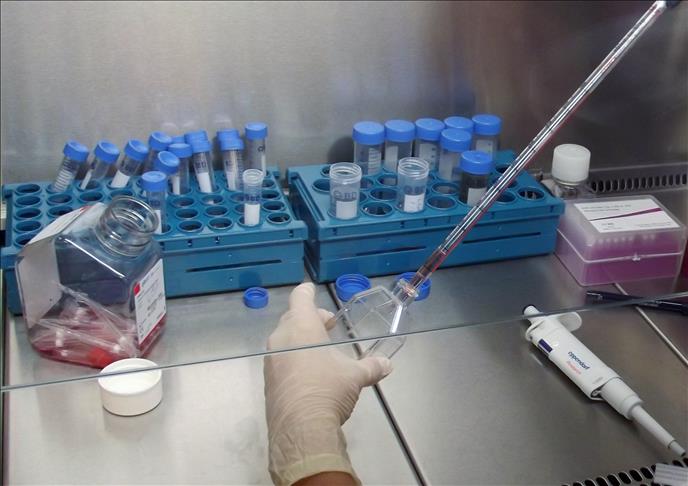Japanese institute says replication of stem cells fails
Scientist who became overnight media sensation fails to reproduce research results for generating faster, cheaper cells

TOKYO
A Japanese research institute has announced that an embattled scientist who became an overnight media sensation after purportedly discovering how to produce stem cells faster and cheaper has failed to reproduce her results in experiments.
The government-funded Riken Center said Friday it had stopped trying to produce so-called STAP cells, which 31-year-old Haruko Obokata published research papers on this year, after verification efforts revealed the improbability of their existence, according to national news agency.
In January, prestigious British journal "Nature" published a paper by Obokata in which she made the claims, but by July it had formally repudiated it as having "critical errors."
Obokata became a media celebrity on announcing that she and her colleagues had discovered a radical yet remarkably easy way to convert ordinary adult cells into stem cells. One of the holy grails of biology is how to create and manipulate these cells without having to revert to utilizing embryonic stem cells from humans.
Her paper was technically titled: Stimulus-Triggered Acquisition of Pluripotency (SNAP). In more layman’s terms it meant shocking blood cells in a mild acid bath, thereby triggering their transformation into stem cells.
The Japanese public, eager for a scientific success story, was momentarily entranced that such a discovery could be made by a young woman, not the usual elderly male scientist in his white smock and beard.
"The [press] built her up, then knocked her down," said Shohei Yonemoto of University of Tokyo.
However, things quickly began to unravel when researchers at Riken, where Obokata led a research unit, began raising questions whether she altered some of the images from her experiments and fabricated data. Riken set up an in-house investigative unit after "problems" were discovered in the research.
Obokata defended her research at least until April when she admitted to mistakes, agreed to pull the papers from "Nature" and apologized in a tearful press conference.
Even then she defended the integrity of her research broadly speaking: "The research was done accurately, and the data exists to prove it so," she said. "The [research] paper was not completed with malicious intent."
The process raised broader cultural questions about how research and development is financed and handled in Japan.
The government has poured billions in yen to support research into alternative methods of inducing stem cells under the leadership of one of Shinya Yamanaka at Kyoto University, who won the Nobel Prize for Medicine in 2012.
Anadolu Agency website contains only a portion of the news stories offered to subscribers in the AA News Broadcasting System (HAS), and in summarized form. Please contact us for subscription options.

